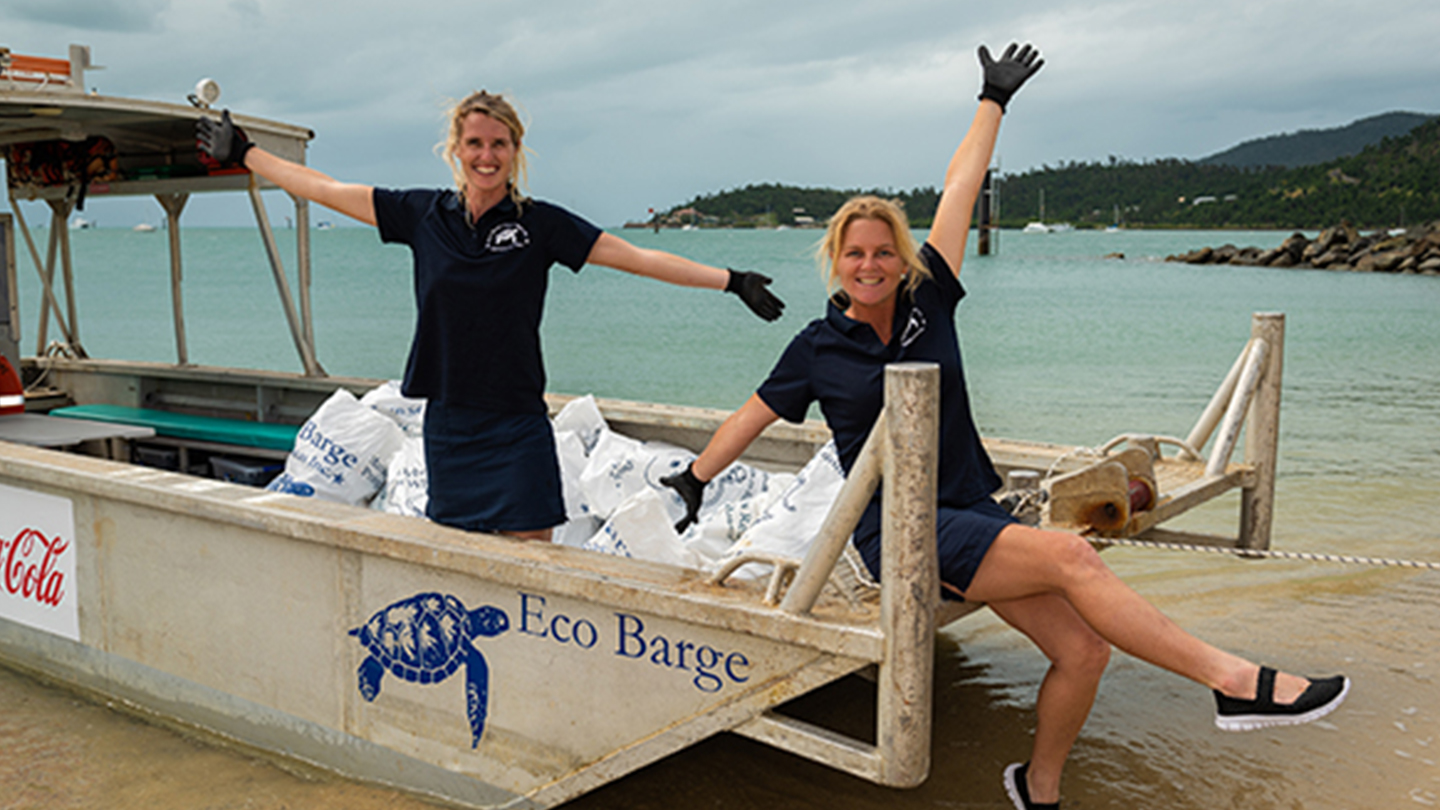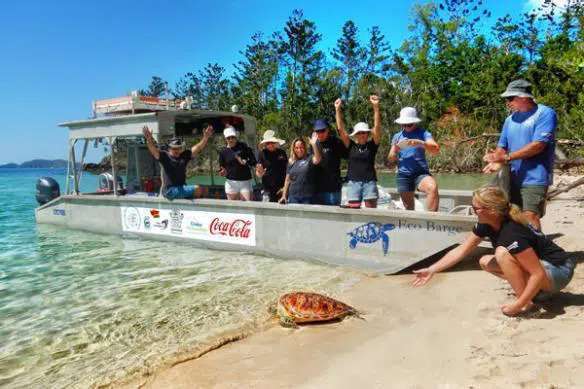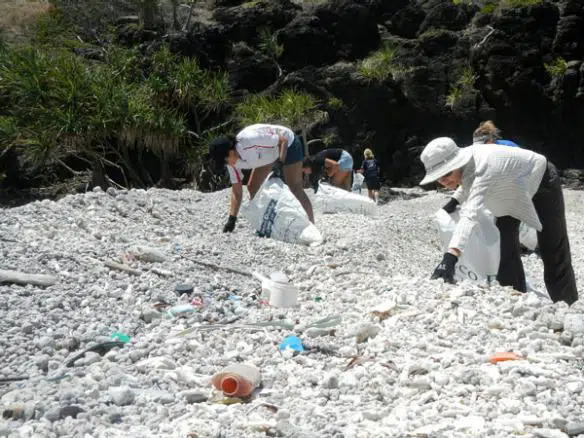
Better Than Your Office Shredder How Eco Barge and the Plastic Collective are Reusing Marine Litter
In an average hour, an estimated total of 900 metric tons of various kinds of plastic waste enter our oceans.
The issue of packaging waste is more of a threat to our planet than ever.
It’s a problem that Libby Edge, environmentalist, skipper and Queensland mum, knows all too well. Seeing marine litter on a camping trip to the Whitsunday Islands was the last straw.
Libby took command of her husband’s commercial barge and started going out to the islands to clean up litter. Within the year she’d gathered up her first volunteers and started the not-for-profit organisation Eco Barge.
Since 2009, Libby and more than 5,000 volunteers have removed 176,000 kilograms of marine debris from the ocean. On land, they collect waste before it reaches stormwater drains, preventing it from reaching the beach.

Once you’ve collected it, what do you do with it?
Disposing of the collected waste has been a tough challenge. Most of it was sent to landfill, but the more they collected, the more Libby wondered if there wasn’t a way to return some and put it to good use.
Eco Barge needed support taking waste collection, reuse and recycling to the next level.
In 2017, Coca‑Cola realised the immense importance of the work of Eco Barge Clean Seas and became a corporate partner. Earlier this year Coca‑Cola connected them with the Plastic Collective, an innovator seeking to transform the plastic waste economy by recycling marine litter into usable materials.
So another chapter began. Enter: the Shruder.
Better than your office shredder
About the size of an office desk, this powerful machine, donated to Eco Barge by Coca‑Cola, shreds up plastic for selling on to plastic recyclers, or creating new products. The Shruder is made by the Australian team at Plastic Collective.

The idea came from Plastic Collective CEO Louise Hardman’s passion to decrease litter in our oceans. For her, the key was to give plastic new value even after it’s been used.
“Plastic is a great material, but we’re overusing and discarding it,” said Louise. “We’re treating it like waste, but plastic is really a long-lasting material. It should be in multi-use items, not single-use items as much as it is. While it might be convenient at the time to use plastic and throw it away, the impact it’s having on our environment isn’t convenient,” she said.
From marine litter to memento
The Plastic Collective travelled to Queensland to deliver the Shruder, spending an intensive two days teaching Eco Barge staff and volunteers how it works.
By the end of the training session, Libby and her volunteers were using the plastic waste extruded from the Shruder to create surfboards, furniture and souvenirs in the shapes of their favourite marine animals. The material can even be used as building material for houses.
“It’s more than just dropping a machine off, it’s developing a whole community approach and exploring where they can go with it,” said Louise Hardman, CEO of the Plastic Collective.

Libby said she can’t wait to put the new Shruder to use. Instead of just moving the litter to landfill, the recovered plastic will be reused.
“It's perfect, it's going to reinvigorate our volunteers’ passion tenfold because before, we just sorted it and put it to landfill. We were just moving the waste from one place to another and that really hurt us,” Libby said.
By the end of the year, Libby estimates that Eco Barge will have removed 200 tonnes of marine debris from the Whitsunday Islands. The difference now is that she will give that litter another life.
“We're dealing with a dark issue, but in a positive way,” Libby said. “We want to work with Coca‑Cola and the companies that are using plastics because that's how we're going to make change. We all want to look after our environment. So, let's do it together, hand in hand,” she said.
Coca‑Cola has committed to help collect and recycle the equivalent of every bottle or can it sells globally by 2030. You can read more about our goal, or find out more about the work of Eco Barge.